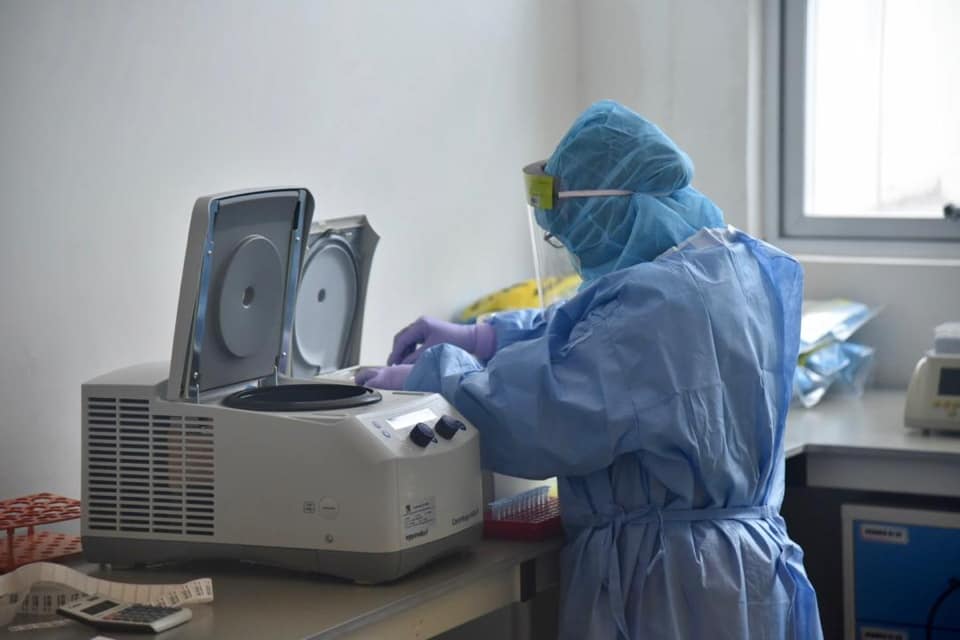KUALA LUMPUR, April 27 — Germany’s leading Covid-19 expert Christian Drosten has suggested that targeted testing may be the best way to fully curb the coronavirus, especially for those at risk.
“Even in Germany, with our huge testing capacity, and most of it directed to people reporting symptoms, we have not had a positivity rate above 8 per cent. So, I think targeted testing might be best, for people who are really vulnerable – staff in hospitals and care homes, for example.
“This is not fully in place even in Germany, though we’re moving towards it,” he said in an interview with The Guardian.
“The other target should be patients in the first week of symptoms, especially elderly patients who tend to come to hospital too late at the “moment – when their lips are already blue and they need intubation. And we need some kind of sentinel surveillance system, to sample the population regularly and follow the development of the reproduction number.”
He also mentioned that despite the success of the lockdown, many Germans retaliated as the government imposed strict social distancing efforts from March 22 to April 19.
Rallies are being organised against the lockdown every week in Berlin, and the most recent one saw about 1,000 people in attendance and a dozen arrested.
“At the moment, we are seeing half-empty ICUs in Germany. This is because we started diagnostics early and on a broad scale, and we stopped the epidemic – that is, we brought the reproduction number [a key measure of the spread of the virus] below 1,” Drosten was quoted saying.
“Now, what I call the ‘prevention paradox’ has set in. People are claiming we overreacted, there is political and economic pressure to return to normal.”
The prevention paradox, he says, is what causes the people to be unhappy with the government’s closure of business. Because of this, he also gets death threats, as he is seen as the man who caused the slowdown of the country’s economy.
“In Germany, people see that the hospitals are not overwhelmed, and they don’t understand why their shops have to shut. They only look at what’s happening here, not at the situation in, say, New York or Spain.
“This is the prevention paradox, and for many Germans I’m the evil guy who is crippling the economy. I get death threats, which I pass on to the police. More worrying to me are the other emails, the ones from people who say they have three kids and they’re worried about the future. It’s not my fault, but those ones keep me awake at night.”
The German government has taken steps to end the lockdown gradually, such as reopening shops and, next month, schools, but Drosten believes states that set their own rules may interpret the government’s plans differently.
“The federal plan is to lift lockdown slightly, but because the German states, or Länder, set their own rules, I fear we’re going to see a lot of creativity in the interpretation of that plan. I worry that the reproduction number will start to climb again, and we will have a second wave.”
Drosten also added that the world must be vigilant of another coronavirus pandemic in the future.
“After the first Ebola outbreak, in 1976, people thought it would never come back again, but it took less than 20 years to do so,” he explained.
He believes resurgence of the virus can be contained but not by focusing on human contact-tracing alone.
“We now have evidence that almost half of infection events happen before the person passing on the infection develops symptoms – and people are infectious starting two days prior to that. That means that human contact-tracers working with patients to identify those they’ve been exposed to are in a race against time,” Drosten expounded, adding that electronic contact-tracing will be required to catch all those potentially exposed as quickly as possible.
Furthermore, he expressed doubt that all the research done worldwide on the coronavirus is helpful and groundbreaking.
“Early on, in February, there were many interesting preprints [scientific papers that have not yet been peer-reviewed] around. Now you can read through 50 before you find something that’s actually solid and interesting. A lot of research resources are being wasted.”
According to the John Hopkins University and Medicine’s Covid-19 dashboard, Germany has 157,770 positive cases and 5,976 deaths.








